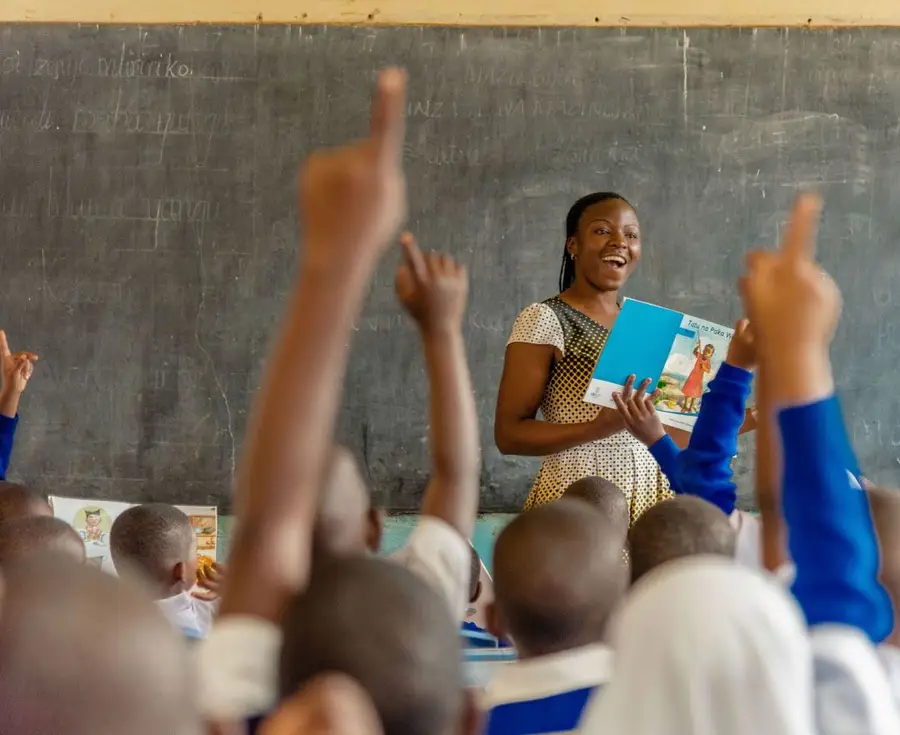
The global development community has grappled for decades with the issue of how to promote both effectiveness and local relevance in their initiatives.
Commonly, a group of global experts designs a program and local partners ensure its cultural relevance. However, adapting a program from one context to another requires a systematic analysis of the cultural differences between the two contexts.
Such an analysis rarely takes place.
Culture shapes everything humans do, but we rarely reflect on it, and we struggle to describe it: In the same way that fish probably don’t spend much time thinking about water. Therefore, although we are all aware that different groups do things differently, articulating and conceptualizing cultural differences doesn’t come naturally to us.
The challenge of cultural adaptation is felt keenly in educational programs to promote social-emotional skills: the skills that help children make decisions, understand emotions, and interact with others.
Culture has a clear role to play in shaping these skills throughout a child’s development. If programs of social-emotional learning (SEL) are to be adapted from one context to another, we need a rigorous analysis of cultural differences between contexts.
Our new study aimed to develop an assessment of SEL for Tanzania, based on a more rigorous analysis of culture. It shows that rural Tanzanians’ conception of social and emotional skills is quite different from the global norm that is derived from research in industrialized countries.
The study illustrates three principles to guide more meaningful cultural adaptation of programs and assessments.
1. Start with a blank slate
Most cultural adaptation processes take existing SEL assessments and tweak them. While this can be part of an effective approach, it’s important to set aside what you “know” from your own experience and from studies conducted in other countries and listen to views of the locals.
In our research, we built a new tool from scratch based on what participants said was important to them. This approach enabled us to identify values—such as social responsibility and social connectedness—that were important to rural Tanzanians, but which were entirely absent from existing assessments.
Conversely, there are competencies in existing assessment frameworks that are less critical for rural Tanzanians. For example, there is a lot of focus in Western psychological science on children’s emotional regulation. However, the evidence is that children in rural Africa have fewer challenges regulating their own emotions (some have suggested that ‘other-regulation’ is a more important construct than ‘self-regulation’ in such contexts).
In our research we found that few respondents mentioned emotional control as an important quality for children to develop, most likely because—as our data show—rural Tanzanian children had already mastered this skill.
2. Appreciate culture as a whole system
In my view, many efforts to adapt SEL assessments to cultural context are somewhat superficial, being restricted to adjusting the language of items or including objects or isolated practices, such as greetings, that are familiar to the locals.
But culture is the foundation—not the window-dressing—of behavior. It underpins a system of behaviors and values that is comprehensive. Cultural differences should not be examined in isolation and need to be understood as part of a whole.
For example, in our study, obedience emerged as the most valued behavior for children in rural Tanzania. The word obedience does not appear in any of the 33 SEL frameworks in a recent review. This is unsurprising. In industrialized countries, obedience may be seen as an unwelcome restriction on a child’s autonomy, not a quality that underpins a child’s flourishing.
To rural Tanzanians, obedience is part of a system of behavior in which children take responsibility for contributing towards communal goals. Being given this responsibility is a source of pride for children and is evidence of the trust that adults place in them. It also confers a sense of group belonging to the child.
Although parents in Tanzania call for obedience in their children, an appropriate programmatic response is to promote the concepts of social responsibility, social connectedness, and a sense of belonging more broadly. These concepts are not well represented in commonly used SEL frameworks but are identified in scholarship in Africa and Islamic countries.
3. Understand culture’s origin and function
To understand culture, it is helpful to explore its origin and function. The value of social responsibility, for example, is useful for small farming communities that work together in family groups.
Emotional control is also important in such contexts because most interactions are between people who know each other and losing one’s temper can destroy a critical relationship.
Understanding the function of culture helps us to analyze changes in society and the effect they may have on the social-emotional competencies children need.
Our study showed that the children of urban, educated Tanzanians were more likely to be curious than rural Tanzanians and less likely to be obedient and have good emotional control. This is because they are being socialized for a world in which curiosity and cognitive abilities are rewarded with jobs; and for urban settings where many interactions are with strangers and individual relationships are less critical.
An awareness of the function of culture also allows for an explicit conversation with participants about how their practices may be aligned or misaligned with their aspirations.
We found that curiosity in children was valued by teachers but not by parents. This is perhaps because some displays of curiosity, such as asking adults questions, can be seen as disrespectful.
Dialogue between parents and teachers could help here: Such conversations should acknowledge the ways in which children’s curiosity drives their learning in school. Assuming that parents are keen to promote their child’s learning, they could explore practices at home that support curiosity and yet are consistent with other cultural values, such as respect and obedience.
Challenging our cultural assumptions
These three principles, I believe, can move us closer towards more culturally relevant design of both programs and assessments for SEL and beyond.
External experts are not well placed to make cultural adaptations to assessments. When our cultural assumptions are supported by every research paper we read, it’s hard to shake the belief that they are universal truths.
It’s only through serious investigation of another world view, which is chronically underrepresented in the research literature (only 0.6% of articles in leading child development articles concern Africa), that we begin to question our firmly held beliefs.
But we cannot expect local research partners, stakeholders, and participants to shoulder the burden of cultural adaptation either. Identifying and adjusting for cultural differences in assessments is a skill that needs to be acquired, not one that simply comes with membership of a different culture.
Facilitated conversation between assessment experts, participants, local research partners, and education professionals that takes a cultural analysis as a guiding framework are essential to ensure that cultural adaptation goes beyond tweaking and results in a fundamentally different approach to effective development programs.
